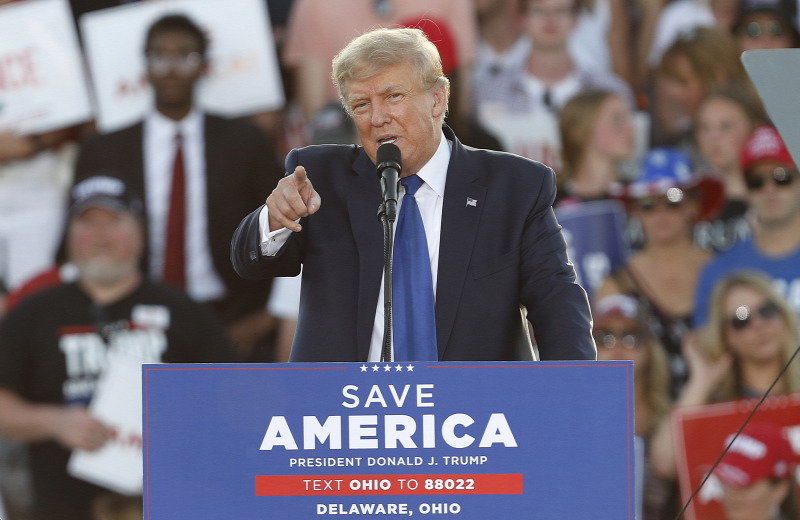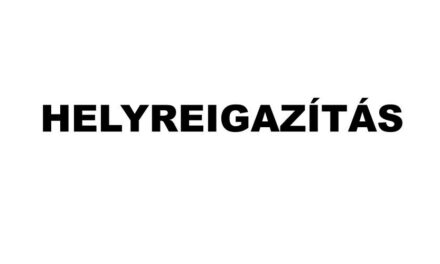Trump supporters are fed up with the blank checks sent to Kiev. If they win a congressional majority in the midterm elections on November 8, it could shake war funding to its foundations.
It is primarily due to the foreign policy direction led by Biden that weapons and bundles of dollars are slowly arriving at the Zelenskyi government. According to Statista , between January 24 and October 3, the United States provided more than $51 billion in aid to Ukraine. Of this, $15 billion was financial, $27 billion was military, and $9.5 billion was humanitarian aid. The USA thus tops the list of war-sponsoring states. The institutional system of the European Union is in second place with 16.24 billion euros, while bronze medalist Great Britain supported Ukraine with "only" 6.66 euros.
However, the bottomless purse may close if the Republicans gain a majority in both houses of Congress on November 8. Our colleague Zoltán Mihálovics analyzed the chances of this (and its impact on Hungary) here , pointing out that the Republicans are much more likely to take a more conciliatory position in the war in Ukraine, advocating an immediate peace that can be reached through negotiations. So if that's the end result, that is
can significantly upset the size and order of the above-mentioned financing amounts.
The hand of the most generous Democratic patron will be watched by a jury of Republicans, and will strike him if he sees that the gray hero excessively misinterprets the principle of the redistribution of American goods.
It is certain that the Democrats - although they communicate victory by definition - have no illusions about what will happen if the voters give an unfavorable verdict on the first two years of the president's administration. At the beginning of the year, the White House reinforced it with a bunch of legal representatives, lawyers and communication gurus in case the Republicans, who might gain the upper hand in Congress, would really launch a flood of investigations against the Biden cabinet .
However, Europe and Ukraine do not seem to want to take all of this seriously. On the continent, hooray optimism is unbroken, and Donald Trump's "America First" principle is only a passing memory in a disabled Twitter account.
That won't be enough
The USA within NATO vs. Europe's tensions were brought to the surface by Trump when, to put it mildly, he nervously pointed out during his presidency how wrong it is that NATO is practically financed by the USA, while European countries are having enormous difficulty in transferring even 2 percent of their GDP to defense purposes.
More and more countries are targeting and achieving 2 percent (Hungary is expected to achieve it next year), but the former Republican president's enthusiasm has recently started to be shared by the Biden cabinet: Lloyd Austin, the US Secretary of Defense, stated a few weeks ago that 2 percent of GDP is not the goal, but a lower limit, the minimum that the US expects from its allies, but much more will be needed. This is a difficult matter for some European countries, while a significant part of their military technology has been gifted to Ukraine, and the fear of economic recession is constantly hovering over their heads. There is no point in increasing the defense budgets if the increasing crisis puts governments in an "either-or" situation. It is no coincidence that the 3 percent GDP spending promised by Liz Truss will most likely be nothing, as her successor, Rishi Sunak, clearly wants to restore the British economy lying in ruins - if necessary, at the expense of war financing.
The USA - while constantly sending money, goods, and weapons to Ukraine, is getting more and more nervous about the uneven distribution of the burdens. The newly published National Security Strategy of the United States already states: "as we increase our significant contribution to NATO's capabilities, we expect our allies to assume greater responsibility by increasing their spending, capabilities and contributions." It's a polite wording, but the conservatives are starting to get fed up with sharing friendly advice and are talking about much more radical means.
Declining enthusiasm
When it comes to the purse, Republicans have been very clear. Kevin McCarthy, the Republican leader of the House of Representatives, said in an interview a few days ago: "people are threatened by recession, so no one is going to write blank checks to Ukraine. It is unimaginable that in this situation we are constantly dealing with Ukraine instead of our own problems".
The opinion of the Republicans is also supported by polls conducted among their own voters: in American society
slowly but surely, the proportion of those who believe that the USA is exaggerating the support it provides to Ukraine is increasing.
In March, only 7 percent of the respondents in the Republican camp, in September, 20 percent, and currently 32 percent, held this opinion. Of course, all of this is still not enough for a radical change, not to mention the fact that the official position of the conservatives has not changed on the need for unified action against Russian aggression.
This was also felt by Nancy Pelosi, the Speaker of the Democratic Party, who quickly responded to McCarthy's words and explained that the United States will support Ukraine regardless of the outcome of the elections. He emphasized that the assistance provided to Ukraine is not a blank check at all, as "Kiev demonstrated fairness and transparency when receiving aid." The latter's sentence is tragicomic because among the persistent problems, the complete uncertainty of the fate of Western arms shipments is one of the biggest.
Gardening tips for those who are lagging behind
It is really unlikely that a Republican-majority Congress will "exit" the USA from the comfortable proxy war, but the amounts spent so far are causing quite a headache for the party. They therefore follow the example of Austin Lloyd and demand more sacrifices from the already weakened European Union. Tim Burchett, a member of the House Foreign Affairs Committee, put it quite bluntly when he declared: "our allies should start working in their own backyards before they ask us for more subsidies."
The Republicans argue simply and logically: while the Russian-Ukrainian war fundamentally and primarily threatens Europe, the Union's military aid can be said to be ridiculous compared to the American one. Although - and this is the main argument in the communication about closing the money spigot - the USA currently has a much bigger problem with curbing crime due to China and President Biden's liberal border policy.
Europe is fine, fine again
Although forecasts for the midterm elections are closely watched in Brussels, they do not appear to be overly concerned about a possible Republican majority. David McAllister, the chairman of the European Parliament's foreign affairs committee, calmly stated that nothing will change after the elections, since Ukraine has "broad, bipartisan support" in the United States. According to him, all that would happen would be that congressional debates regarding the composition of arms shipments would intensify, but the president - who supervises foreign policy with a strong hand - would find a solution in this case as well. McAllister also emphasized that Europe takes the advice of the USA very seriously, as it has recently increased both its defense investments and the amount of aid sent to Kiev, not to mention measures such as the EU training plan for Ukrainian soldiers, or arms donor countries creation of an extra EU fund to be provided.
Polish MEP Witold Waszczykowski went much further than that. The vice-chairman of the Foreign Affairs Committee is also not worried about the change in Washington's official policy, in fact:
called on the United States to put even more pressure on Europe.
the idea of peace and ending the war as soon as possible is spreading more and more among Europeans .
As a matter of fact, after the initial flagging, Americans are already much cooler in their response to continued support for what they see as a distant conflict. As JD Vance, a Republican running for Congress, put it : “I'll be honest: I don't really care what happens to Ukraine. I'm sick of the president focusing on a country he doesn't care about while letting his own country's border become a war zone."
If the Conservatives win on November 8, the change will certainly not be felt immediately. It is likely, however, that they will use several means to obstruct Joe Biden's policy so far and, in their view, his excessively active participation in the Russian-Ukrainian war. If necessary, also by reducing financial resources. And that could even lead to the end of the war.
Featured image: MTI/EPA/DAVID MAXWELL












